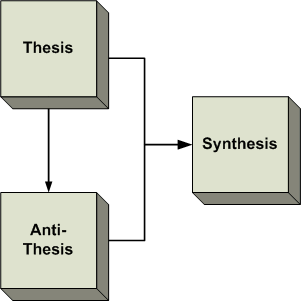Net Zero's Hidden Assumptions
In yesterday’s post — The Ironical Elephant — we talked about how the world has changed since the year 1952, the year of Elizabeth II’s coronation. The end of her reign seems also to mark the end of an economic era.
You Never Had It So Good
At the time of Elizabeth’s accession to the throne, the United Kingdom — like all the nations of Europe — was financially and materially exhausted. War-time rationing of basic foodstuffs and clothing remained, and the standard of living for all but the rich was, by modern standards, very limited.
Nevertheless, there was hope — a sense that things could get better. For example, just five years after the coronation, Prime Minister Harold Macmillan said,
Go around the country, go to the industrial towns, go to the farms and you will see a state of prosperity such as we have never had in my lifetime - nor indeed in the history of this country.
Indeed let us be frank about it - most of our people have never had it so good.
The phrase “never had it so good” is what we would now call a meme. Had there been an internet in Macmillan’s day, the phrase would have “gone viral”.
Macmillan was a politician, and it was in his interest to paint a rosy picture. But his basic point was true — things were indeed getting better.
Such a speech would sound hopelessly out of touch now. It is hard to imagine a modern politician in any nation saying, “you will see a state of prosperity such as we have never had in the history of this country.” Those days are over — we are entering a new and different type of world. That sense of optimism has mostly disappeared.
An Age of Limits
Few politicians in the 1950s understood that the fundamental reason for the new prosperity was the availability of abundant, usable energy from oil fields around the world. Now, three generations later, we are running into limits. Not only are supplies of oil and many other natural resources dwindling, we are spending an increasing fraction of the energy that is available to us on finding and developing new sources of energy. We have also added vast quantities of carbon dioxide and other greenhouse gases to the atmosphere, the consequences of which are now becoming all too apparent.
In other words, we have entered an Age of Limits.
An Hegelian Synthesis
Georg Hegel was an 18th century German philosopher whose writings are notoriously obscure, even by the standards of 18th century German philosophers. His ideas led to the concept of an ‘Hegelian Synthesis’, even though he himself probably did not use the term. The basic idea can be summarized in the following three steps.
We start with an initial idea or situation. This starting point is referred to as the ‘Thesis’.
We have a reaction or negation to the Thesis. It is called the ‘Antithesis’.
A ‘Synthesis’ develops — it has its roots in both the Thesis and the Antithesis, but it is not the same as either.
The concept is illustrated in the following sketch.
In the context of the above discussion, the Thesis is a time abundance — the new Elizabethan age that started in the 1950s and that is now coming to an end.
The Anti-Thesis is where we are now. Our material prosperity seems to have reached a limit, is declining for many. We are also paying the price for our destruction of the environment, and for adding billions of tons of greenhouse gases to the atmosphere.
None of us know what the Synthesis will look like. A worst-case scenario is that it will involve some form of collapse. All we know with certainty is that we cannot swim in the same river twice — we cannot return to the ‘Good Old Days’, the time when “We never had it so good”.
No to EVs
The “EV Revolution” is a concern because it assumes that we can, in fact, return to the ‘Good Old Days’. The idea of having automobiles that are less polluting than those we have now sounds attractive. But we probably cannot hold on to the idea of everyone having their own car. We should be shifting away from the automobile to new forms of public transport.
Glimmers of Hope
News to do with climate change and resource depletion is almost invariably bad. But there are some signs that we are trying to create a better Synthesis.
Psychological Tipping Point
Climate scientists talk about “tipping points” — situations where the climate moves quickly and irreversibly into a new stage. The ‘Blue Ocean Event’ is an example. As arctic ice melts, less sunlight is reflected back into space, so more energy is absorbed by the ocean, so more ice melts, and so on.
It appears as if we may have experienced a psychological tipping point in the year 2022. On what seems like a daily basis we hear about floods, storms, droughts and wild fires. It is increasingly hard to deny that ‘something is going on’.
Reasons for (cautious) optimism
Two recent articles in the Guardian newspaper hint at a new Synthesis. The first article states that, “there is evidence that action to combat the climate crisis is belatedly accelerating.”
Capital in the Anthropocene (Book)
The second Guardian article was to do with the Japanese book Capital in the Anthropocene, which has now sold more than half a million copies. The article starts with the words,
The climate crisis will spiral out of control unless the world applies “emergency brakes” to capitalism and devises a “new way of living”.
The book’s author, Kohei Saito, says,
One thing that we have learned during the pandemic is that we can dramatically change our way of life overnight – look at the way we started working from home, bought fewer things, flew and ate out less. We proved that working less was friendlier to the environment and gave people a better life. But now capitalism is trying to bring us back to a ‘normal’ way of life.
In other words, we cannot return to the Thesis of the ‘Good Old Days’.
Implications for Net Zero by 2050
Most ‘Net Zero’ statements contain a hidden assumption. The stated goal is generally on the following lines,
Our organization’s goal is to have ‘Net Zero’ emissions of greenhouse gases by the year 2050.
A more accurate statement would be,
Our organization’s goal is to have ‘Net Zero’ emissions of greenhouse gases by the year 2050, and to continue our economic growth.
A more prudent statement would be on the following lines.
Our organization’s goal is to have ‘Net Zero’ emissions of greenhouse gases by the year 2050, during a time of radical economic restructuring.





